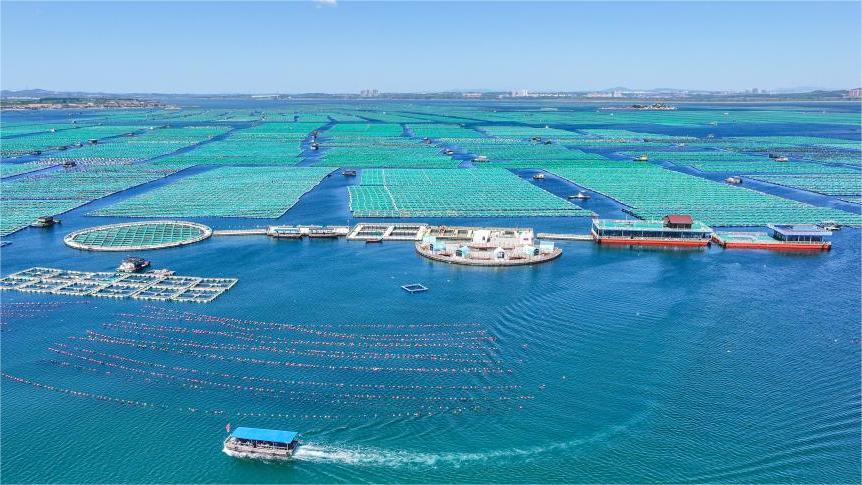Latest tariff hikes won't revitalize U.S. manufacturing sector: experts
SHANGHAI, May 19 (Xinhua) -- Despite the United States' claims that the new tariffs on Chinese products aim to protect its workers and domestic businesses, both Chinese and foreign experts doubt whether these measures will truly benefit the U.S. manufacturing sector.
Earlier this week, the White House unveiled new tariffs on a variety of imports from China, including electric vehicles (EVs), lithium batteries, photovoltaic cells, critical minerals, semiconductors, steel and aluminum.
Wang Honglin, a research fellow at the China Academy of Financial Research, Shanghai Jiaotong University, expressed skepticism about whether higher tariffs on Chinese goods would rejuvenate the U.S. manufacturing sector.
High tariffs could negatively impact U.S. manufacturing firms by diminishing their incentive to streamline production costs and enhance product quality, he told Xinhua in a recent interview, adding that consequently, domestically produced goods might struggle to compete internationally, ultimately jeopardizing the longevity of U.S. businesses in a fiercely competitive global market.
Among the more than a dozen categories of newly-targeted Chinese goods, tariffs on Chinese EV imports will rise to 100 percent this year.
"While American EV companies may experience temporary success in the domestic market, they risk eventual obsolescence due to their inability to match the competitiveness of their Chinese counterparts on a global scale," Wang warned.
"Tariff walls do nothing to improve the competitiveness of U.S. domestic carmakers. Worse, it creates a security blanket and extends the life of their gas-powered vehicles," said Bill Russo, founder &CEO of Automobility Limited, a Shanghai-based strategy and investment advisory firm.
Furthermore, solar cell imports will face a 50 percent tariff increase, certain Chinese steel and aluminum products will see tariffs rise to 25 percent this year, while semiconductor tariffs will escalate to 50 percent by 2025.
Hu Jie, a professor at the Shanghai Advanced Institute of Finance, believes that the latest tariff hikes targeting Chinese products could have a greater impact on American businesses and consumers.
"The Biden administration's tariff policy may weaken the U.S. economy and reduce the global competitiveness of U.S. businesses...Tariffs can also affect consumer purchasing power, as rising product prices may suppress consumer demand, thereby reducing overall consumption levels and negatively impacting the economy," the professor noted.
The latest tariff policy reminded Hu of the Smoot-Hawley Tariff Act of 1930, which aimed to protect American industries by raising tariffs, but ultimately weakened the global economy, particularly the U.S. economy.
"This historical lesson tells us that protectionist trade policies can lead to serious economic consequences," Hu warned.
"These policies will not help America develop new manufacturing capacities," said Josef Gregory Mahoney, a professor with East China Normal University, underscoring the importance of international openness and competitiveness in driving China's EV industry forward, thus benefiting companies such as Tesla.
Photos
Related Stories
- Up to 2,000 gallons oil may spill into Gulf of Mexico as barge hits bridge in U.S. Texas
- 4 dead in Houston storms
- U.S. House passes bill seeking to undo Biden's pause on arms transfer to Israel
- Classes go online at University of California, Irvine after pro-Palestinian encampment dismantled by police
- U.S. move of tariff hikes sets "bad example" for free trade
- U.S. tariff hikes politicize trade issues: experts
Copyright © 2024 People's Daily Online. All Rights Reserved.









